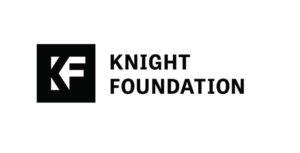November 13, 2019 by Sarah T. Roberts and Safiya U. Noble
On Nov. 3, 2019, Knight made a $3.5 million investment in new research to inform the national debate on internet governance and policy, including support for the UCLA Center for Critical Internet Inquiry (C2I2). Sarah T. Roberts, Ph.D., and Safiya U. Noble, Ph.D., of UCLA share details below.

 A democratic and emancipatory society necessarily must consider and champion its people, and provide protection from dangerous dimensions of digital technologies. Without a critical examination of those technologies – in a way that keeps pace with their rapid development, uses, and implementations – the resulting social, political, and economic structures will be riddled with the same dangerous dimensions.
A democratic and emancipatory society necessarily must consider and champion its people, and provide protection from dangerous dimensions of digital technologies. Without a critical examination of those technologies – in a way that keeps pace with their rapid development, uses, and implementations – the resulting social, political, and economic structures will be riddled with the same dangerous dimensions.